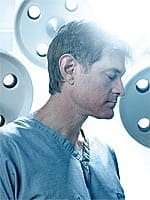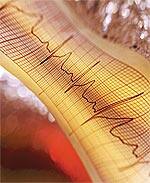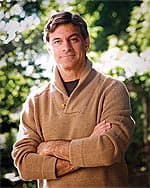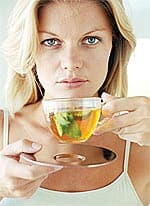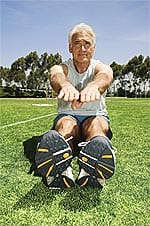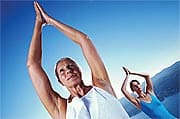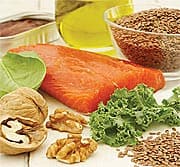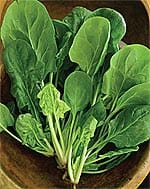Life Extension Magazine®
Changing the way millions of people actively incorporate preventive health into their lives has become a daily practice for Dr. Mehmet Oz. As one of the world’s most accomplished cardiac surgeons, Dr. Oz is taking life-saving medicine beyond the operating room. Now, in an effort to reinvent medicine on a global level, he has taken his visionary medical knowledge to every conceivable form of media to teach people how to use natural methods to live longer, reduce stress, and avoid the killers of heart disease and cancer. A quick Google search reveals over 795,000 entries for Dr. Oz. On any given day, he can be heard on XM Satellite Radio, seen on Oprah or Good Morning America or read in Esquire magazine or in any of his bestselling YOU books. Everywhere one looks, there is Dr. Oz patiently instructing all of us—both patients and doctors—on a new kind of medicine that begins with taking an enlightened approach to preventing life-robbing diseases. Dr. Oz is at the forefront of an international revolution in health and medicine.
Yet despite the immense media presence, Dr. Oz remains first and foremost a dedicated, hardworking physician, a rolls-up-his-sleeves cardiac surgeon who is at the top of his field and performs more than 250 surgeries annually. In addition to all of this, he has time to develop new life-saving techniques. Dr. Oz is director of the Heart Institute at New York Presbyterian/Columbia Medical Center and professor and vice-chair of Surgery at Columbia University. His research interests include heart replacement surgery, minimally invasive cardiac surgery, complementary medicine, and health care policy. He has authored over 400 original publications, book chapters, abstracts, and books in addition to receiving several patents. And all the while, he is pushing the envelope of what is currently called the “standard of care” and empowering patients to take charge of their own health and well-being. Put these two pictures of Dr. Oz together and you begin to see the makings of a movement, one that has the power to change the face of medicine and how it is practiced, even how we think about it.
As a child, Mehmet Oz thought about what he wanted to be when he grew up and decided he would either be a professional athlete or a surgeon. He reasoned that there were similarities between the two— both have to deliver the goods every day, and no one cares how well you performed yesterday. Growing up, it became clear that his abilities in athletics would not lead him to a stellar career in that field, so he focused on medicine. After earning an undergraduate degree from Harvard, Dr. Oz enrolled in medical school at the University of Pennsylvania, where his training was what he called “traditional.” Students were essentially instructed to ignore any real or perceived mind-body connection and to view and study organs as individual entities. This process, he says, is effective for teaching science-based, organ-based medicine. And at the time, he found this approach sufficient. Physicians sometimes claim they find deep insight about human existence bordering on revelation during their early years of medical school. When Dr. Oz first saw a living, beating heart in a patient’s chest cavity, he was awed by the elegance of how the organ “twists the blood out of it the way you would wring water from a towel.” He knew then that the heart would become his specialty. Watching it twisting and turning, he suddenly understood why the heart is so important in so many aspects of life and culture, from poetry and religion to its association with the soul and love. From that point, he says, “I’ve dedicated my life to trying to figure out how to help people who are challenged with heart disease.” But it was near the end of his residency that Dr. Oz met a patient who gave him what he calls an epiphany. He wasn’t prepared to have the foundation of his education turned upside down by one experience. A woman with a bleeding ulcer was brought into the emergency room. Though she had lost a lot of blood, a transfusion and a suture would fix her problem. However, the woman and her family calmly refused the blood transfusion for religious reasons, even though that transfusion could save her life. Dr. Oz whisked the woman off to the operating room, confident he could eventually get the family’s permission to do the transfusion. The surgery went well, but the patient showed signs of organ failure due to blood loss and her blood count was at a point where she should have already died. Still certain he would be doing the transfusion, Dr. Oz was horrified when the family steadfastly refused. At this point came the epiphany. The patient’s family, was in effect telling Dr. Oz that there was a deeper love, a deeper belief by which they were living their lives, and that no matter how logical it seemed that she should get the blood, they didn’t want the blood. “The woman who was going to die that evening hung out for another day, and then another day, and then another day, and she finally went home,” Dr. Oz says. “And she never did get that blood. And although I would never recommend, in the future, for someone not to get the blood, it was to me a very revealing experience, because I began to recognize that as dogmatic as I thought I could be with my knowledge base, there were certain elements of the healing process I could not capture. And even if I was right in the science, I could be wrong in the spirit.” The experience caused Dr. Oz to conclude that there was more to medicine and healing patients than his training had taught him. He began to investigate other means of healing, and that led him to non-Western medical practices that really weren’t completely foreign to him. His parents were born in Turkey, and he spent summers and holidays in the country, a place where non-traditional methods of healing are commonplace. That upbringing probably gave him more of an open mind in regards to alternative healing methods. Sometimes these innovative healing therapies were brought to his attention by patients who came to New York Presbyterian Hospital from all over the world. They had their own healing traditions that had been effective for them in the past and wanted to continue using them. But they sensed that the modern doctors in this country wanted nothing to do with such things, which resulted in something Dr. Oz found interesting. “They would abdicate all responsibility for their care once they walked into our hospital, and so we tried to change that, to give them the confidence to play an active role in their own recovery process by letting them use their own healing traditions. And that’s how I actually learned about many of these alternative therapies.” Dr. Oz became comfortable with seeing the same reality from different perspectives—traditional and non-traditional medicine. He reached beyond the medical textbooks and conventional thinking to enlarge the paradigm by exploring alternative means of healing and complementary therapies. Today in his clinical practice, and as director of the Cardiovascular Institute Complementary Medicine Program at New York Presbyterian Hospital, he boldly brings out-of-the-mainstream techniques such as meditation, yoga, reflexology, energy healing, and massage into the operating and recovery rooms. He recommends nutritional supplements, proper diet, stress reduction and exercise, believing there is far more to healing than technology and pharmaceuticals. His goal is to promote health and wellness in his patients, not just absence of disease. Some physicians might consider such techniques being used in modern hospitals to be radical at best. But by using them and showing that they can lead to more positive outcomes, doctors might discover that there is more than one way to practice medicine, something better than what was taught in medical school.
Says Dr. Oz, “Some people feel I’m on to something big, others disagree. Orthodox medicine makes people think it’s witchcraft, but I think the truth is in the middle. When you finally figure out that you’ve got the best technology available, when you’ve finally climbed the last technology mountain and the patient still doesn’t feel well, you’ve got to look elsewhere. That’s when we start looking in areas where typically we in the West are much less comfortable—like spirituality and alternative therapies—things that bridge cultures of healing beyond this country’s borders.” | ||||||
| Dr. Oz has coined the term global medicine to describe this blending of Western and non-Western methods of healing—two things he believes do not have to be mutually exclusive. He holds these complementary therapies, some new and some very old, to the same standards as he does Western techniques, and will only use what he sees is working for the patient. “If we are to achieve maximum healing, we should use any tool at our disposal—including non-scientific approaches—provided there is evidence that they do no harm to the patients,” he says. Maintaining his strong confidence in science, Dr. Oz feels that the standard belief that medicine offers all the solutions has caused patients to give up the proactive role they should be playing in their own health care. Reclaiming that proactive role has become his powerful and enabling message to the public, and he is clearly excited about delivering that message to millions through his books and TV appearances.
This public education aspect of his career began when the news media discovered he was “a good interview.” Reporters often visit the Columbia University medical school when covering medical stories, and calls to Dr. Oz became more frequent. Increased exposure as a subject matter expert led to even more demand for Dr. Oz, and his audience grew tremendously when he appeared on Oprah Winfrey’s show, appearances that eventually led to regular health and wellness segments. Dr. Oz seems custom-made for television. He engages the audience with his fascination with the possibilities of both traditional and complementary medicine. Listening to him, you want to lose weight, you want to eat better, and live longer. But by educating people in this way, he is helping to open channels of communication between patients and their doctors so that patients are further empowered to become more involved in their own health destinies. Dr. Oz has become a ubiquitous presence on the internet and has also written several enormously popular books. His breakthrough 1999 book, Healing from the Heart: A Leading Surgeon Combines Eastern and Western Traditions to Create the Medicine of the Future, recalls his own experiences as a heart surgeon, his evolution into integrative medicine, and patient success stories. He went on to create the “You” series of books (co-authored with Dr. Michael Roizen), such as the best-selling You: The Owner’s Manual, You: On a Diet, and You: The Smart Patient, written to provide people with the information they need to take control of their own health and become comfortable doing so. His newest book in the series could be the most exciting yet. You: Staying Young, The Owner’s Manual for Extending Your Warranty brings the field of anti-aging medicine front and center (see sidebar below).
“I think there’s a disconnect between people and their own bodies, an information gap,” he says. “No one ever said to them, ‘Here’s what’s going on with your body.’ And if they’re not ready to hear it in the way they want to hear it, that can be scary. America has a lot of health issues we’re not dealing with, but people need to realize they have a lot of control over this process. They can learn things on their own and be savvy users of the health care system. The problem has been that for most people, authentic information can be really hard to get. But I want to make everyone a smart user of health care and to make sure that everyone’s getting the best care because both doctor and patient are asking the right questions.” Dr. Oz encourages people to be prepared for their doctor appointments by developing their personal health profile, a summary of their health issues and history that includes family history, and to be prepared to discuss critical topics. He advises people to learn as much as they can from as many sources as they can, and cites Life Extension magazine as “a good resource that’s full of practical information and articles about supplements that I often find useful.” “Most patients don’t do a great job of communicating with their doctors because patients often give us docs too little pertinent information to go on—and remember, just like a detective, we’re looking for the facts,” says Dr. Oz. “At the same time, they may also give us too many distracting or off-topic details. The first sign of a Smart Patient is that telltale document, the personal health profile that they produce during their first visit, or even their 50th. This is the sign of a patient who means business, one who will challenge us to be at our absolute best, and who won’t waste time and money on redundant and unnecessary efforts.” Between his practice, teaching, writing books, and making media appearances, it is tempting to conclude that Dr. Oz is a man who probably doesn’t sleep much. The love of his profession and his passion for his message keep him going in all these areas. He strongly believes that we can turn around the health problems facing the nation today if people will simply take charge of their own health destiny again.
“I’m passionate about the message. I believe that all health care is personal, and we have to get Americans to do it for themselves,” he says. “The ultimate solution to the health care problem in our country will only be found through empowering individuals to take better care of themselves. It won’t happen otherwise. We can try to delegate healthcare from Washington, DC, but the only way to get healthy is for individuals to take responsibility to do it on their own.” With Dr. Oz’s help, we are certainly on the way to doing so.
| |||||||

